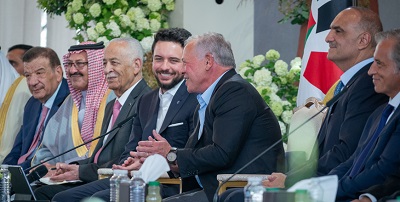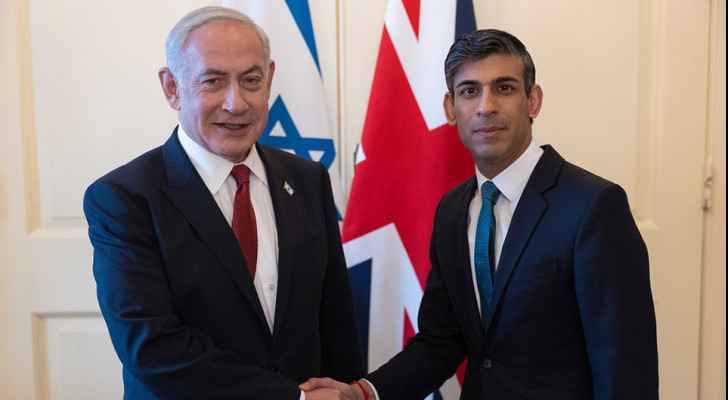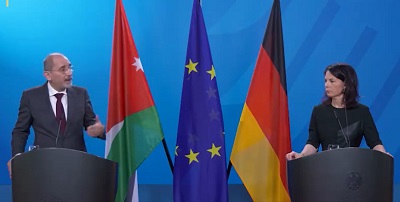Whitewash Protocol: The So-Called Investigation of Operation Protective Edge
Btselem.org
Summary, Sept. 2016
Two years ago, in the summer of 2014, another “round of fighting” between Israel and Palestinians in the Gaza Strip took place. Israel called it Operation Protective Edge. In term of harm to Palestinians, it was the deadliest and most destructive bout of hostilities since 1967. During Operation Protective Edge, Israel killed 2,202 Palestinians, hundreds of them in their homes. Sixty-three percent, or 1,391, did not take part in the fighting, including 526 minors. It is estimated that 18,000 homes were destroyed or severely damaged and that more than 100,000 Palestinians were rendered homeless.
This extensive harm raised grave concerns that Israel had breached international humanitarian law (IHL). The only official body in Israel supposedly investigating these concerns is the Military Advocate General’s Corps (MAG Corps), which announced that it had begun its investigations before the fighting ended. However, much like investigations into previous rounds of fighting, once again, there are no investigations of the true culprits: Neither government officials nor senior military commanders, who devised the policy, were responsible for the orders and made operational decisions during the fighting – were ever investigated by any official body nor held to account for their responsibility for the devastating effects of their decisions. Two years after the fact, there has been no investigation of policy issues, including the policy of targeting inhabited homes, which resulted in the Israeli military killing hundreds of people; the policy of indiscriminate artillery fire at inhabited areas; and the policy of destroying farmland and thousands of homes.
In addition to all this, the MAG – who is in charge of investigations within the military – is faced with an inherent conflict of interests when it comes to the investigation of these acts. On the one hand, he was responsible for providing the military with legal counsel before the fighting, worked closely with military personnel on the ground throughout the fighting and signed off on their policies. On the other hand, he is now tasked with deciding what cases merit an investigation and what measures will be taken upon its completion. In cases in which suspected breaches of law relate to orders he personally approved, the MAG would have to order an investigation of acts he is responsible for, and, should senior officers be investigated, an investigation against himself, or his direct subordinates.
While the fighting was still going on, the MAG Corps announced that it had already begun its inquiries into suspected breaches of the law. In late August 2016, it published its fifth update on the matter, stating that, until then, it had received complaints related to about 360 incidents. Of these, some 220 incidents had been referred to the Fact-Finding-Assessments (FFA) Mechanism, which had been set up during the fighting to make preliminary inquiries into complaints. The MAG Corps update does not say how many cases had been referred back from the FFA Mechanism to the MAG, but notes that the MAG had ordered the closure of some 80 of them without ordering an investigation by the MPIU (Military Police Investigations Unit). The MAG did order an MPIU investigation in seven cases. The MAG Corps update does not mention how many investigations had been concluded, noting only that the MAG had ordered the closure of one case. In 24 other cases, mostly related to violence and looting, the MAG ordered an immediate MPIU investigation without first going through the FFA Mechanism. Thirteen of these investigations have been concluded, with the MAG ordering the case closed without any further measures. Only one investigation has thus far resulted in indictments: Two soldiers were charged with looting and a third with aiding and abetting in the incident.
Operation Protective Edge investigations were limited, from the outset, to isolated cases, and focused exclusively on the soldiers in the field. As such, they are inherently of limited benefit. A review of the updates issued by the MAG Corps, including the reasons provided by the MAG, indicates that even the investigations that are carried out fail to get at the truth or contribute to accountability.
The information released by the MAG Corps on the work of the FFA Mechanism conceals more than it reveals: It is not clear how many teams were established, who their members are and what functions they fulfil inside the military, what timetables govern the work of the mechanism, what resources were allocated to it and what powers its members have been given. It is also unclear what the MAG’s criteria are for deciding which case will be referred to the FFA Mechanism, which will be referred directly for criminal investigation and what falls under the definition “exceptional cases”.
Moreover, and most importantly, the reasons cited by the MAG for the closure of cases reveal an unreasonable interpretation of IHL. The MAG found that soldiers had obeyed the law in 22 cases, based on an examination of the incident as an exceptional, isolated, decontextualized case. International law does require an individual examination of the legality of each attack, but the interpretation given by the MAG to this requirement is far reaching and completely ignores the overall context, despite its being critical to the determination of the lawfulness of each individual attack.
The MAG examined only several of dozens of almost identical attacks that took place over the fifty days of hostilities, time after time ending with terrible human tall. Given these recurring results, one cannot accept the MAG’s position, that those responsible for these attacks could reasonably base their assessments of the anticipated harm to civilians on assumptions that were repeatedly proven unfounded, and debunked by their own actions or the actions of their colleagues - at a heavy death toll.
The interpretation adopted by the MAG has a far reaching implication that applies to all strikes carried out during the operation: It absolves every level of officials involved in the attacks – from the prime minister, through the MAG himself through to the persons who ultimately fired – of the duty to do everything in their power to minimize harm to civilians. In fact, the MAG sets the bar very low in terms of what is required of those responsible for the attacks – including senior military officers and the MAG (who are not under investigation in any case) – by doing no more than examining what they claimed to know prior to the attacks, while entirely disregarding the question of whether their assessment was reasonable. In doing so, the MAG utterly overlooks the issue of what those responsible for the attacks should have known, including the obligation to learn from their own experience.
Even while Operation Protective Edge was still underway, and more so after it came to an end, politicians, jurists and senior officers in the military and the MAG Corps, declared that there was no need to investigate the military. They contended that the military had abided by the provisions of IHL and done everything in its power to avoid harm to civilians throughout Operation Protective Edge. Statements made by officials imply that one of the reasons they favor investigations – even if merely ostensibly – of suspected breaches of law during Operation Protective Edge ¬is a desire to prevent the International Criminal Court (ICC) in The Hague from addressing the issue itself.
According to the ICC’s constitution, it will not intervene so long as Israel can prove it is willing and able to investigate breaches of IHL on its own. It appears that Israel has failed to meet even this goal. The chief prosecutor of the ICC has not made her decision as to whether the ICC has jurisdiction to investigate what took place during the fighting in Operation Protective Edge. However, should the prosecutor decide such jurisdiction does exist, it is highly doubtful that the investigations conducted by Israel would keep the court from stepping in.
In late May 2016, B’Tselem published a report entitled The Occupation’s Fig Leaf: Israel’s Military Law Enforcement System as a Whitewash Mechanism. In this report, B’Tselem explains its decision to stop referring complaints to the military, due to the system’s ongoing failure to ensure accountability in cases in which soldiers harm Palestinians. The report reviews B’Tselem’s work vis-à-vis the MAG Corps and the MPIU over the course of 25 years, and demonstrates how the system produces the semblance of law enforcement, when, in actual fact, its success is measured by its ability to whitewash violations.
The whitewash mechanism is in play not only in the context of military control and policing of Palestinians in the West Bank, as reviewed in the abovementioned report, but also in relation to the investigation of strikes that took place during the fighting in the Gaza Strip. In this case too, the system’s main concern is with creating the false appearance of a functioning system which allegedly strives to get at the truth, while in fact, the investigations are perfunctory examinations of isolated, decontextualized incidents, while the people who are truly responsible for the violation are never investigated.
After Operation Protective Edge, B’Tselem announced it would not refer complaints to the military law enforcement system, despite receiving an official request to do so. We did, however, note that we would eagerly retract our decision if we see that serious, independent investigations are conducted with respect to the persons responsible for violations of IHL during the fighting. Two years after the fact, we regrettably see that what we said then still holds true now, and that Israel continues to devote most of its efforts to creating a façade and nothing more.
The fighting during Operation Protective Edge was brutal and violent. Israel implemented a policy of air strikes against homes, which killed hundreds of people, including entire families. Tens of thousands of people were left homeless, losing all they held dear. Genuine, effective investigations are needed not just for the sake of achieving justice for the victims and their loved ones. They are needed as a deterrent to forestall future actions of this sort and to avert further losses. When nothing is investigated, when the consensus is that everything done during the fighting was moral and legal – the stage is set for actions such as these, or even worse, to recur. There was no accountability after Operation Cast Lead, only whitewashing. Now, after Operation Protective Edge, there is no accountability either, only whitewashing. This is not a theoretical legal issue: we are talking about human lives.
Latest News
 King from Mafraq: Jordan’s security, sovereignty above all considerations
King from Mafraq: Jordan’s security, sovereignty above all considerations Sunak tells Netanyahu to “allow calm heads to prevail”
Sunak tells Netanyahu to “allow calm heads to prevail” Safadi, Germany’s Baerbock discuss war on Gaza, regional escalation
Safadi, Germany’s Baerbock discuss war on Gaza, regional escalation FM, EU commissioner discuss development cooperation, regional de-escalation
FM, EU commissioner discuss development cooperation, regional de-escalation Jon Stewart unpacks Iran launching missiles at Israel
Jon Stewart unpacks Iran launching missiles at Israel
Most Read Articles
- Senate president, Iraqi president discuss bilateral ties, regional issues
- King from Mafraq: Jordan’s security, sovereignty above all considerations
- Sunak tells Netanyahu to “allow calm heads to prevail”
- JHCO dispatches 75-truck convoy of food aid to Gaza
- Sudanese rue shattered dreams as war enters second year
- UN agency finds unexploded 1,000-pound bombs in Gaza schools
- Egyptian Foreign Minister condemns potential Palestinian displacement as 'war crime'
- Jordan monitors citizens in UAE amid weather concerns
- Making emerging technologies safe for democracy - By Marietje Schaake and Steven Schuurman, The Jordan Times
- Massive fire engulfs Copenhagen’s historic stock exchange